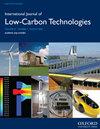基于高光谱遥感技术的区域土壤水分动态研究
IF 2.4
4区 工程技术
Q3 ENERGY & FUELS
引用次数: 0
摘要
为实现山东省潍坊市渭河流域下山水库上游区域土壤水分动态分析,提出了基于高光谱遥感技术的区域土壤水分动态分析模型。通过遥感影像的光谱信息、地表参数等数据预测和推断土壤含水量的过程可以反映土壤的光谱信息。直接提取遥感影像中对土壤水分变化敏感的波段,作为土壤水分测井反演模型的自变量输入,以实测土壤水分值作为因变量输入进行土壤水分预测过程。构建了能够反映水分信息的SI-1、SI-2等水光谱指数,并通过各种波段间的关系构建了用于土壤含水量检索的水光谱指数。与单纯利用光谱反射率相比,利用水光谱指数大大提高了检索精度。采用粒子滤波算法对观测数据和模拟数据进行同化,得到同化后的土壤水分。利用误差评价指标对所得同化结果的准确性进行评价,并进一步利用不同粒子数和观测误差进行多次数据同化实验,探讨粒子数和观测误差对同化结果的敏感性。采用均方根误差(RMSE)、相对误差(RE)和平均绝对误差(MAE)来检验数据同化的效果。试验表明,利用该方法对芳渭河流域夏山水库上游区域土壤含水量进行动态分析,通过划分植被覆盖度得到的分布图在不同土壤水分盐渍化程度的比例、水分的区域分布等方面更符合实际情况。利用高光谱遥感反演土壤水分的思路是有效的。本文章由计算机程序翻译,如有差异,请以英文原文为准。
Research on regional soil moisture dynamics based on hyperspectral remote sensing technology
In order to realize the dynamic analysis of regional soil moisture content in the upper reaches of Xiashan Reservoir in Weihe River Basin, Weifang City, Shandong Province, a regional soil moisture dynamic analysis model based on hyperspectral remote sensing technology is proposed. The process of predicting and deducing the soil water content through the spectral information of remote sensing images, surface parameters and other data can reflect the soil spectral information. The band sensitive to the change of soil moisture in remote sensing image is directly extracted, which is used as the independent variable input in the soil water logging inversion model, and the process of soil moisture prediction is conducted with the measured soil moisture value as the dependent variable input. The SI-1, SI-2 and other water spectral indexes that can reflect the water information are constructed, and the water spectral index used for soil water content retrieval is constructed through various relationships between bands. Compared with the spectral reflectance alone, the use of water spectral index greatly improves the retrieval accuracy. The particle filter algorithm is used to assimilate the observed data and simulated data to obtain the assimilated soil moisture. Error evaluation indicators are used to evaluate the accuracy of the obtained assimilation results and further use different particle numbers and observation errors to conduct multiple data assimilation experiments to explore the sensitivity of particle numbers and observation errors to the assimilation results. The root mean square error (RMSE), relative error (RE) and mean absolute error (MAE) are used to test and verify the effect of data assimilation. The test shows that the dynamic analysis of the regional soil moisture content in the upper reaches of Xiashan Reservoir in the Fangwei River basin by using this method the distribution map obtained by dividing the vegetation coverage are more consistent with the actual situation in terms of the proportion of different soil water salinization degrees, the regional distribution of water, etc. The idea of using hyperspectral remote sensing to retrieve soil moisture is effective.
求助全文
通过发布文献求助,成功后即可免费获取论文全文。
去求助
来源期刊

International Journal of Low-carbon Technologies
Engineering-Architecture
CiteScore
4.30
自引率
4.30%
发文量
106
审稿时长
27 weeks
期刊介绍:
The International Journal of Low-Carbon Technologies is a quarterly publication concerned with the challenge of climate change and its effects on the built environment and sustainability. The Journal publishes original, quality research papers on issues of climate change, sustainable development and the built environment related to architecture, building services engineering, civil engineering, building engineering, urban design and other disciplines. It features in-depth articles, technical notes, review papers, book reviews and special issues devoted to international conferences. The journal encourages submissions related to interdisciplinary research in the built environment. The journal is available in paper and electronic formats. All articles are peer-reviewed by leading experts in the field.
 求助内容:
求助内容: 应助结果提醒方式:
应助结果提醒方式:


